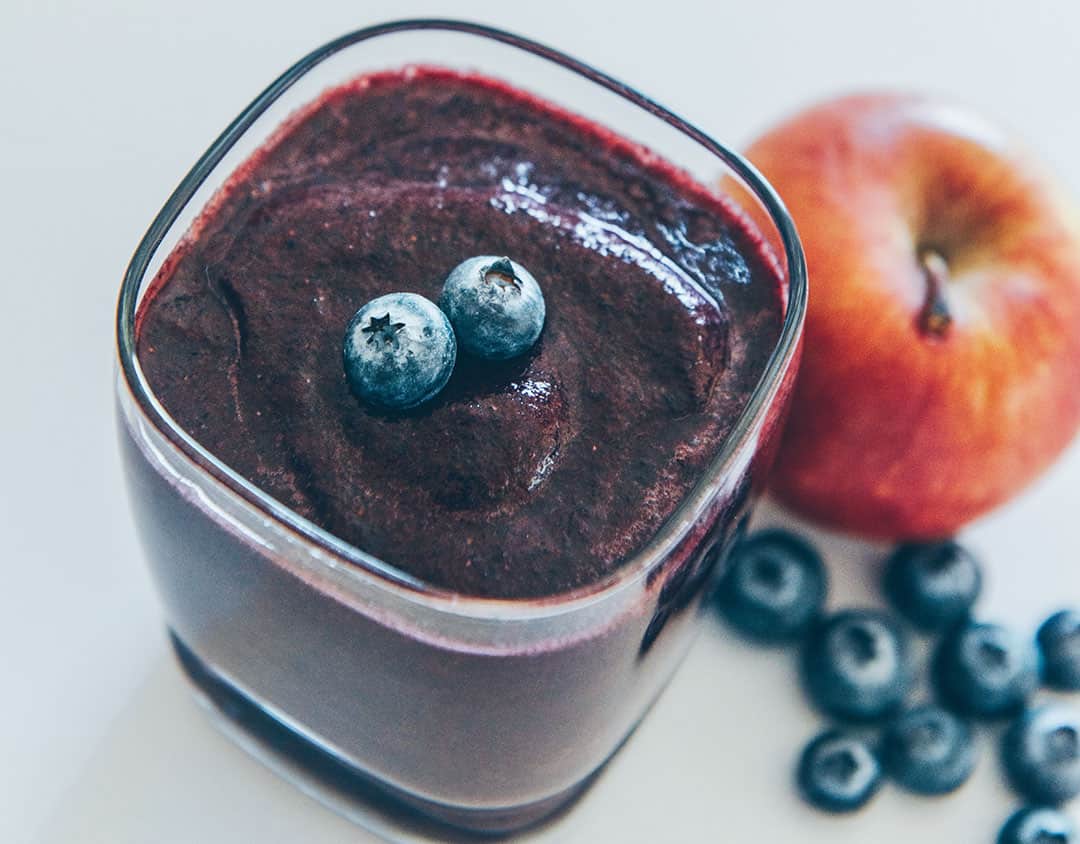
Key Nutrients For Pregnancy
April 7, 2021
Healthy Breakfast Egg Bites
May 25, 2021While pregnancy can be such a wonderful and exciting time, it can definitely result in some physical symptoms that leave us feeling less-than-ideal.
A s your body adapts to grow and accommodate this new life inside you, you may start to experience some very common, but unwanted symptoms, such as heartburn, constipation and episodes of nausea and vomiting. Fortunately, the severity of these symptoms can often be managed with certain dietary and lifestyle changes. You’ll notice that many of these symptoms can be improved with the same strategies.

Here are 4 common pregnancy symptoms and strategies to help manage them.
1. Nausea and vomiting
Morning sickness, ugh, in my experiencing it was more like all-day sickness. Nausea can often be one of the first signs of pregnancy due to the hormonal changes. It is most common during the first trimester and often decreases as the pregnancy progresses. This can be one of the most annoying pregnancy symptoms as the last thing you feel like doing is eating, but eating often helps to ease the nausea.
To prevent or ease nausea and vomiting, try to:
- Eat small, frequent meals and snacks throughout the day. This is the most annoying advice to get when you don’t feel like eating anything, but I promise you that eating regularly throughout the day will help to keep nausea at bay. Nausea often worsens on an empty stomach and then it can be even more challenging to find something that you would feel like eating. Try to have something to eat within an hour of waking up in the morning and every 2-4 hours throughout the day.
- Women often feel nauseated in the morning because they haven’t had anything to eat all night. Try keeping saltine crackers by your bedside and have a few before getting out of bed to avoid getting up with an empty stomach.
- Choose foods that are appealing to you. There is so much pressure to eat healthy while pregnant, but the number one priority is to simply eat enough food throughout the day to support your body and your little one. So, if all you can tolerate is ice cream, go for it. You can also try incorporating the ice cream into a milkshake with banana and berries for added nutrients.
- Choose more bland and cold foods. Hot foods emit smells, which sometimes be enough to turn you off of eating. Try foods like bananas, rice, bread, crackers, applesauce, cereal, milk, yogurt, pudding, nuts, and boiled eggs.
- When the idea of solid foods turns you off, opt for nourishing liquids, such as smoothies or soups. They’re easy to get down and can be packed with protein, fats, and fibre.
- Stay hydrated. If plain water makes you feel more nauseated, try sports drinks, smoothies, milk, non-caffeinated teas, soups, or juices to get your fluids in for the day.
- Do not smoke or use alcohol. Avoid or limit caffeine intake.
- Reduce exposure to strong smells and trigger foods, such as spicy or fried foods. Open a window for fresh air when you cook or microwave foods to help reduce the smell. Or have someone else cook for you if possible. Fresh air while eating can also help reduce nausea.
- Ginger is a natural remedy for nausea and vomiting. Try adding fresh ginger to smoothies, sipping on ginger tea, or sucking on ginger candies.
- Contact your health care provider if you have severe, ongoing nausea and vomiting (occurs more than 2 times per day, unable to keep fluids down) as this can lead to dehydration and malnutrition, or if your symptoms are accompanied by abdominal pain or vaginal bleeding.


2. Constipation & Hemorrhoids
Changes in hormones during pregnancy can result in a slowed digestive tract, which can cause constipation for some women. Hemorrhoids are swollen veins at the end of the large intestine. They are common during pregnancy, especially in the third trimester, due the increased pressure caused by your growing uterus, increased blood flow to the pelvic area, and constipation, which may lead to more straining.
To ease constipation and prevent and/or manage hemorrhoids, try to:
- Incorporate plenty of fibre in your diet. Pregnant women should aim for 25-30 grams of fibre per day. Try to incorporate fibre-rich foods into every meal and snack (think plants!), such as fruits and vegetables, whole grains (e.g. brown rice, whole grain bread, oats), legumes (e.g. beans, lentils, chickpeas), nuts and seeds (e.g. chia, flax).
- Drink plenty of fluids – try to incorporate at least 8-10 glasses of fluids every day to keep the solids moving through your GI tract and softening your stool. Fluids can include water, sparkling water, juices, soups, decaf coffee/teas.
- Eat frequent and small meals. Try to have something to eat every 2-4 hours throughout the day. Eating less often can result in being overly hungry at meal times and lead to overeating, which can be overwhelming for your digestive tract and worsen symptoms.
- Try to incorporate 20-30 minutes of enjoyable movement each day. This can include walking, dancing, yoga, stretching, cleaning, biking, swimming and more. Incorporating movement helps to reduce the amount of time you’re sitting and putting pressure on the area.
- Try to respond to early urges to use the washroom and don’t put it off. The longer fecal matter stays in your digestive tract, the more water is absorbed and the harder it will be to pass. Try to give yourself enough time in the day to use the washroom when needed.
- Don’t strain when using the washroom as this can worsen hemorrhoids. Speak to a pelvic floor physiotherapist to learn how to relax your pelvic floor for more effective evacuation.
- Certain prenatal vitamins and iron supplements can worsen constipation. Speak to your health care provider regarding alternative prenatal vitamins or iron supplements that you could consider.
- Speak to your health care provider about safe laxatives that may be incorporated into your routine if your constipation and/or hemorrhoids persist.
3. Fatigue
You’re creating a human, which takes a huge amount of energy and results in many hormonal changes. Therefore, feeling low energy and run down can be quite common throughout the entire pregnancy.
To manage fatigue, try to:
- Eat enough food throughout the day. Food gives us energy, so of course not eating consistently or enough at meals and snacks can contribute to fatigue. When pregnant, we need to add an additional 1-2 snacks per day compared to our pre-pregnancy eating patterns to meet our bodies higher energy needs.
- Try to make your meals balanced when possible, to provide your body with a variety of nutrients. Incorporate a protein-rich food (e.g. eggs, fish, beans, tofu, chicken, yogurt), starches (e.g. rice, bread, quinoa, oats, pasta, potatoes), fats (e.g. olive oil, avocado, nut butters), and vegetables/fruit at each meal.
- Stay hydrated by drinking plenty of water throughout the day. Dehydration can contribute to fatigue.
- Prioritize rest when possible. Try to incorporate a wind-down routine in the evening to help make falling asleep easier. Avoid screens for at least 1 hour before bed. If able, incorporate a short nap in the afternoon.
- Try to incorporate 20-30 minutes of enjoyable movement into your day. You may not feel like you have the energy to move, but even getting outside for fresh air and a brief walk can help improve energy levels.
- Contact your health care provider if you are experiencing weakness, shortness of breath, low mood/depression, unusual thirst, or temperature sensitivity. Fatigue can be a sign of more serious conditions such as anemia, hypothyroidism and hyperthyroidism, and gestational diabetes.

4. Heartburn
Heartburn in pregnancy can be caused by hormonal changes that relax the sphincter at the base of your esophagus and the pressure of your growing baby pressing against your stomach. Symptoms of heartburn include a burning sensation or pain in the chest, feeling full, heavy or bloated, burping or belching, bringing up food.
To ease heartburn, try to:
- Slow down when eating. Take small bites and chew well. This helps to better break down food and reduce the likelihood of swallowing too much air.
- Eat small, more frequent meals. Eating large meals can overfill the stomach and put pressure on the lower esophageal sphincter, causing food to reflux back up. Aim to have something to eat every 2-4 hours.
- Try to stay upright for 30-60 minutes after eating to give your body time to digest before laying down.
- Keep a food and symptom journal to start to identify any possible food triggers. Specific food triggers and the amounts tolerated vary greatly from person to person and can also change over time. Some common trigger foods include spicy foods, fried and fatty foods, processed meats, coffee, chocolate, carbonated beverages, mint and citrus.
- Try to drink fluids between the meals instead of with the meal. Drinking fluids with the meal can fill you up and may distend the stomach.
- Avoid alcohol and smoking, as both of these foods can worsen acid reflux.
Although pregnancy can be challenging and wearing, your body is strong and amazing. Also know that it’s completely normal and okay to not enjoy the entire process, creating life is hard work!
Written by Joy Tang and Liz Powell, RD.
References:
- Amy O’Connor. (2020). Constipation During Pregnancy. https://www.whattoexpect.com/pregnancy/symptoms-and-solutions/constipation.aspx
- Colleen de Bellefonds. (2021). Fatigue During Pregnancy. https://www.whattoexpect.com/pregnancy/symptoms-and-solutions/pregnancy-fatigue.aspx
- HealthLink BC. (2019). Fatigue During Pregnancy. https://www.healthlinkbc.ca/health-topics/tn9106.
- HealthLink BC. (2019). Nausea or Vomiting During Pregnancy. https://www.healthlinkbc.ca/health-topics/tm6615.
- HealthLink BC. (2019). Pregnancy: Hemorrhoids and Constipation. https://www.healthlinkbc.ca/health-topics/hw194957.
- UCSF Health. (2021). Coping with Common Complaints of Pregnancy. https://www.ucsfhealth.org/education/coping-with-common-discomforts-of-pregnancy
- Public Health Agency of Canada. (2021, April 1). Your Guide to a Healthy Pregnancy. Canada.ca. https://www.canada.ca/en/public-health/services/health-promotion/healthy-pregnancy/healthy-pregnancy-guide.html#a14.





